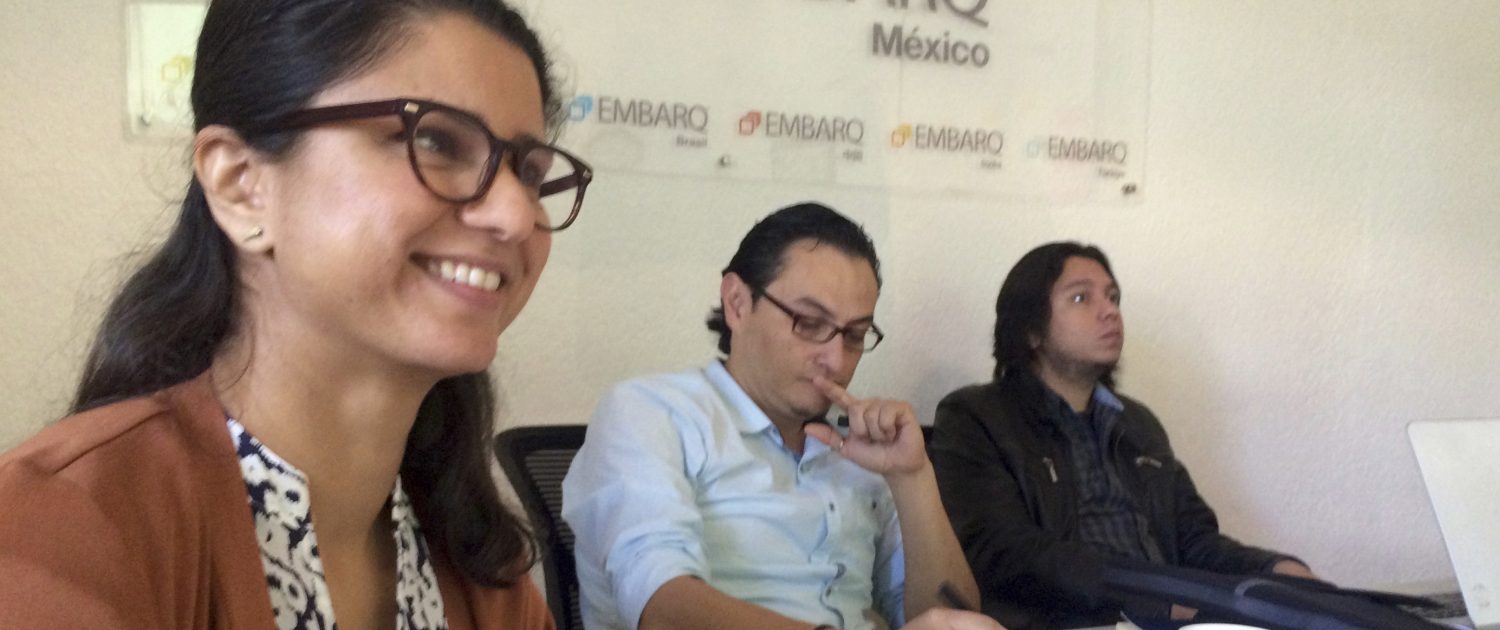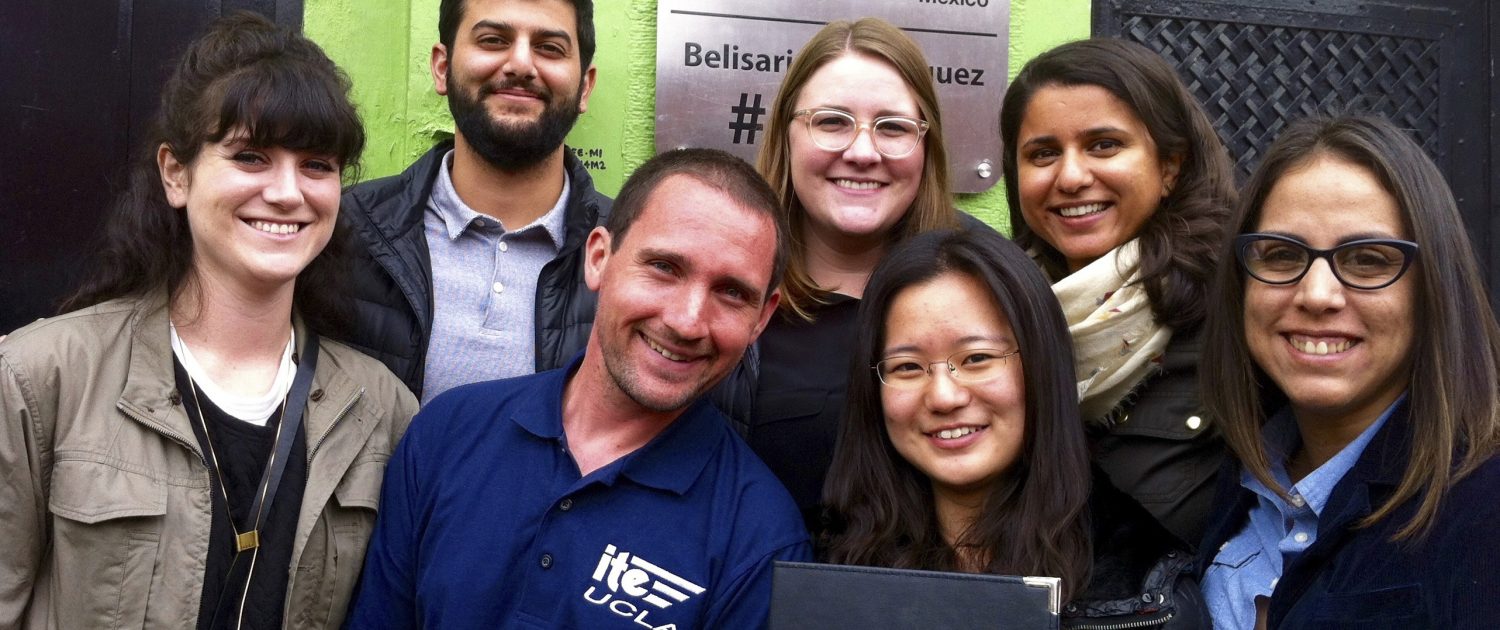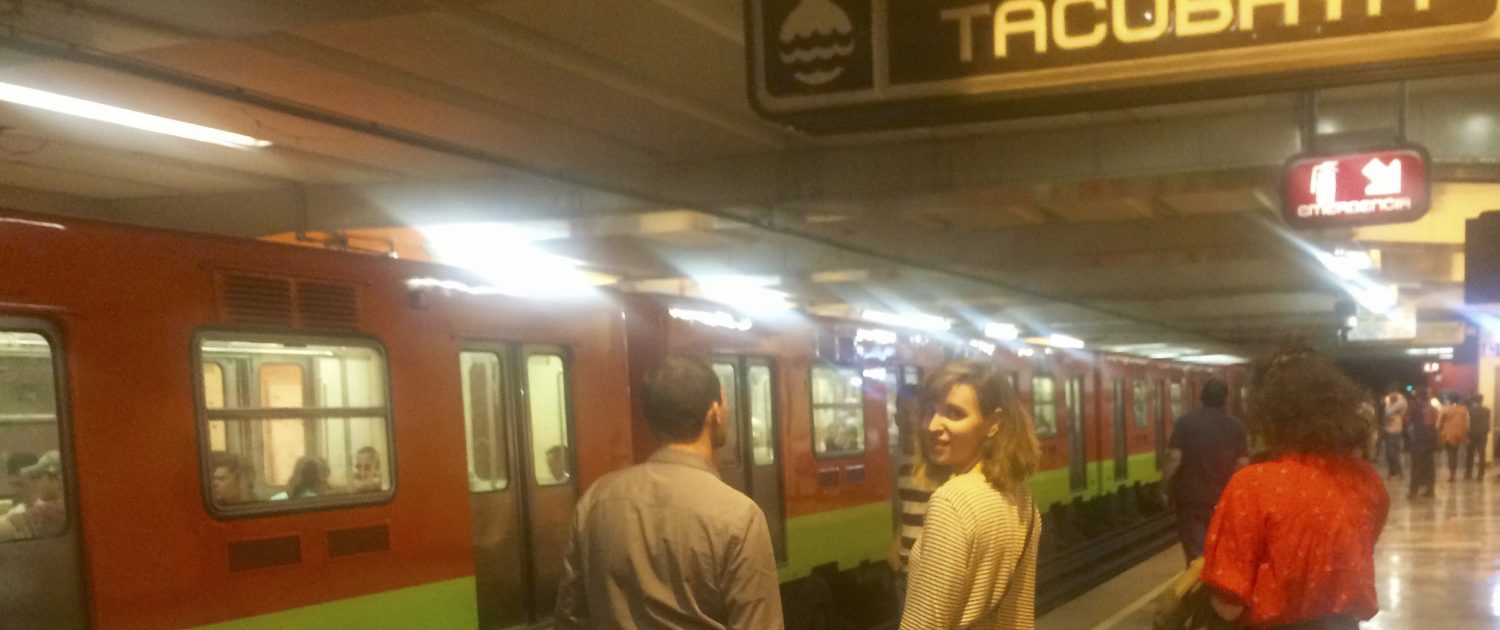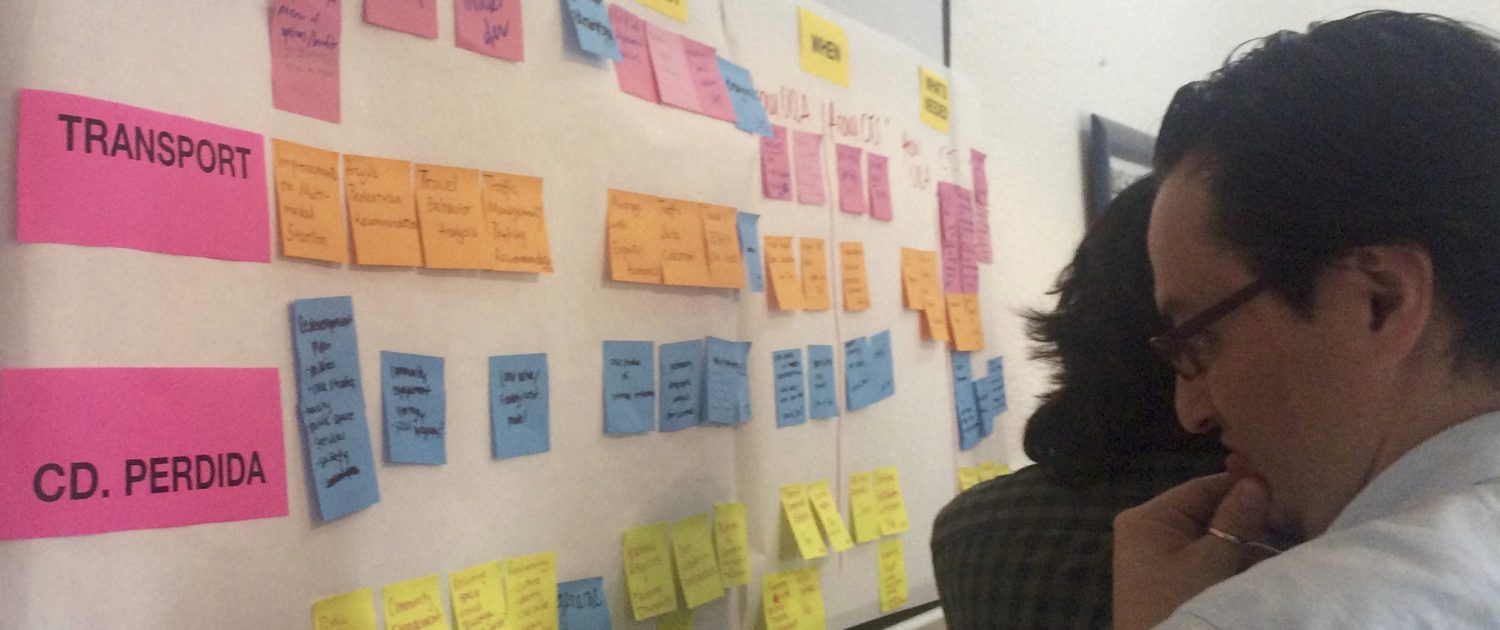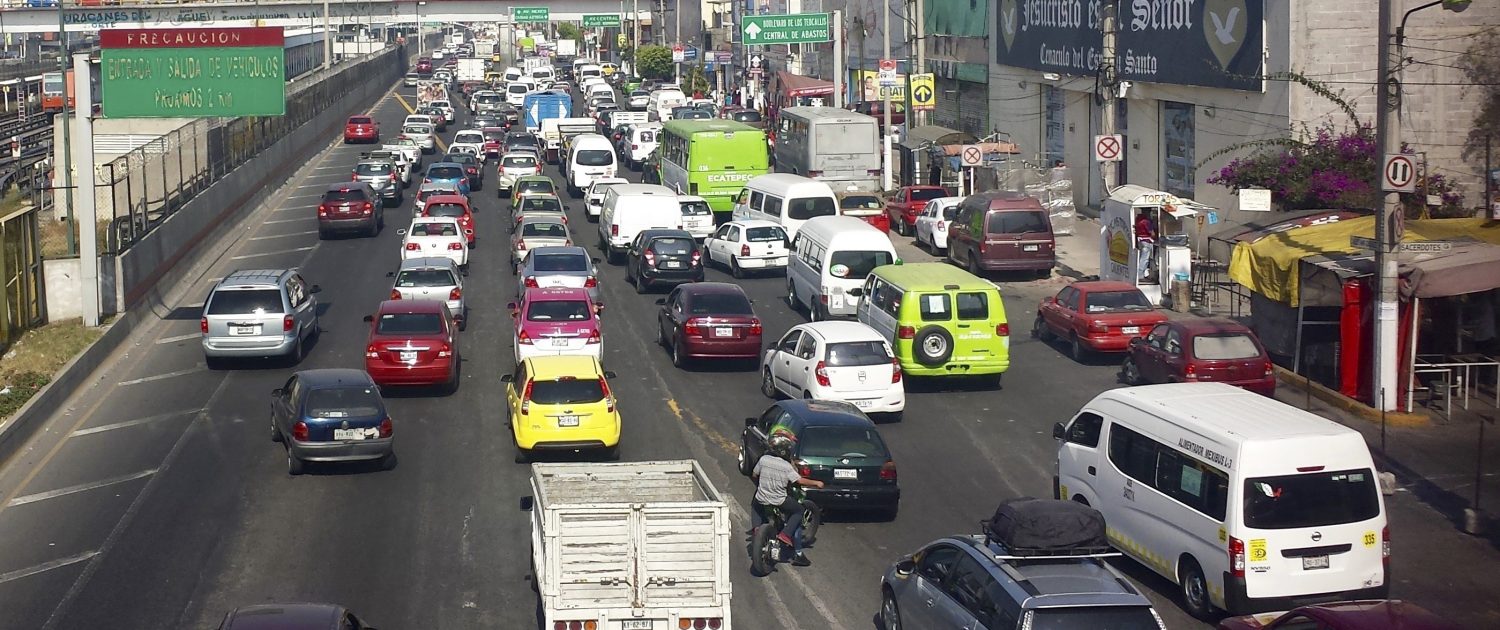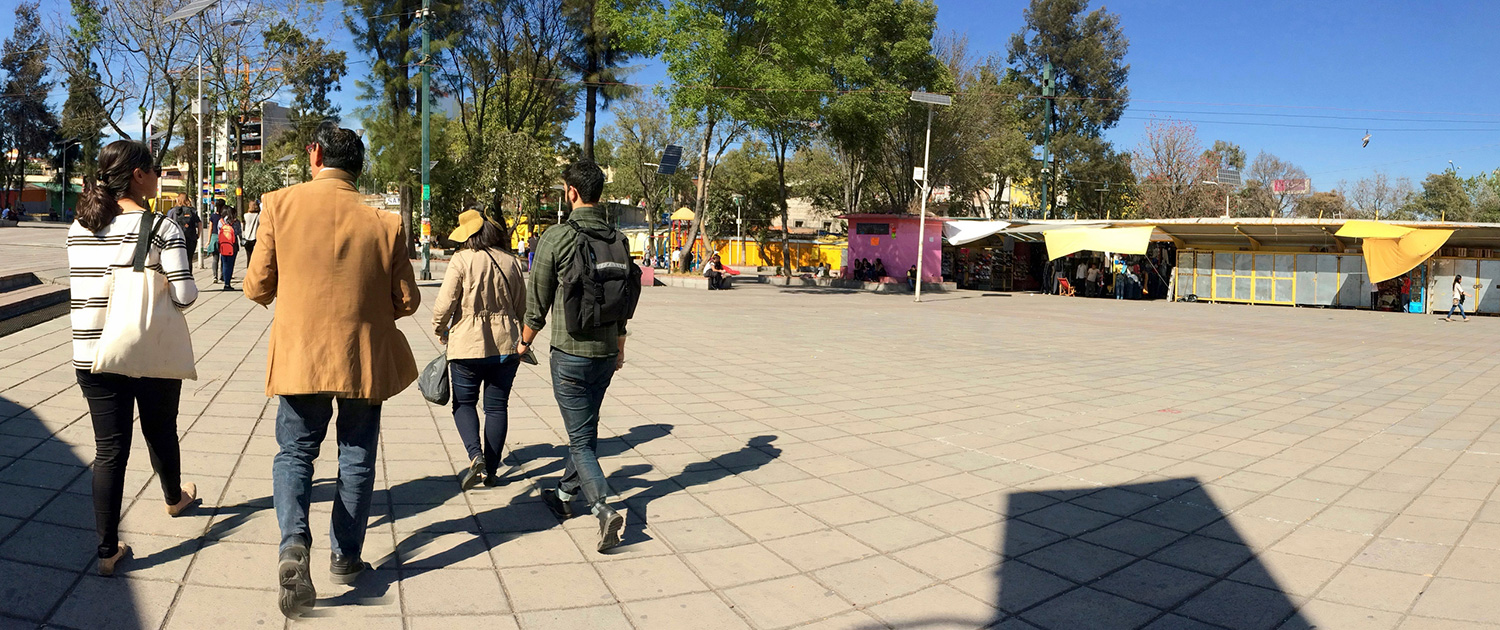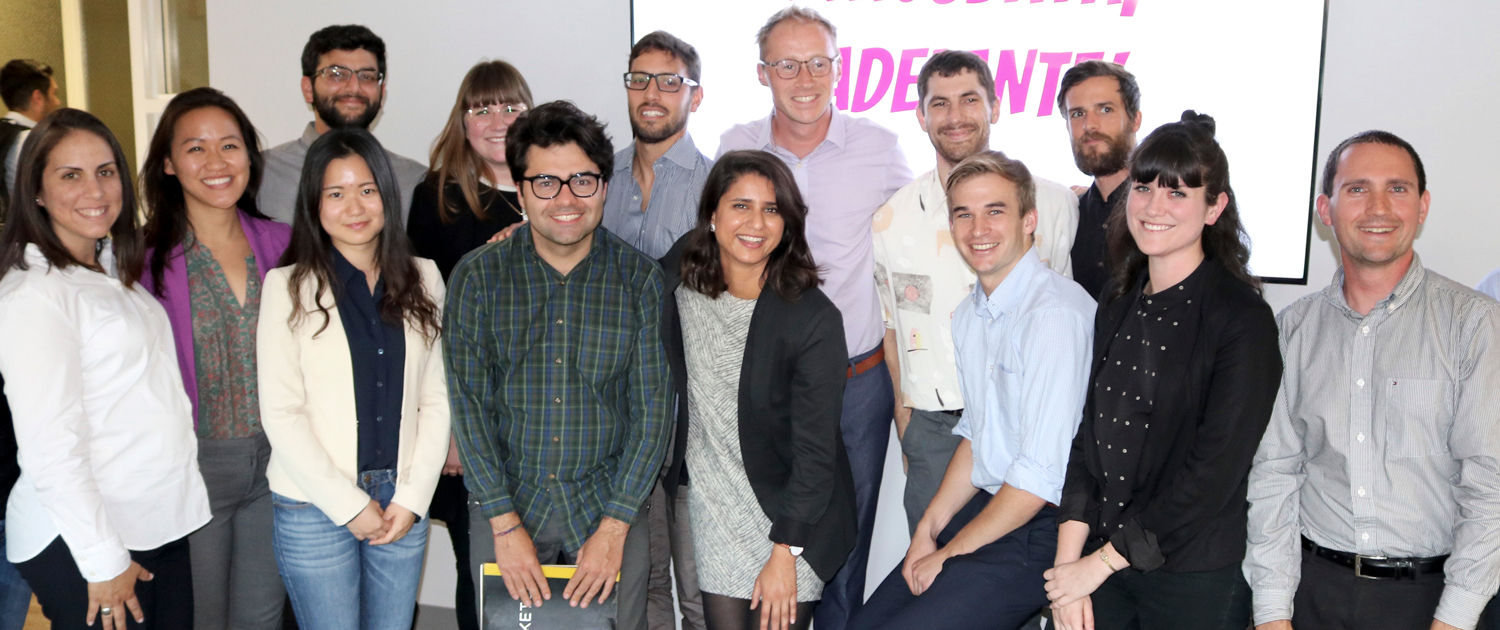By George Foulsham
Within the heart of Mexico City sits the bustling neighborhood of Tacubaya, population 5,000. Centuries ago, the area was considered rural, but in the mid-19th century urban growth in Mexico City swallowed Tacubaya and it became one of the poorer neighborhoods in a giant metropolis.
Tacubaya of today is defined by intersecting transportation lines that transformed the once-sleepy neighborhood into a central transit hub for thousands of commuters who swarm the area at various times of the day and night. Crime, poverty, unemployment and informal housing are all painful evidence of a community that has suffered from neglect and a lack of investment. Freeway development and an absence of a cohesive community plan have led to a dearth of public amenities as well.
It’s a town that could use help — the kind of help that urban planners could provide.
To address Tacubaya’s issues, the Secretaría de Desarrollo Urbano y Vivienda (SEDUVI), an agency within the Mexico City government, hired international consulting company CTS EMBARQ to help design a new development tool, El Sistema de Actuacion por Cooperacion (SAC). Translation: a performance system by cooperation. The hope is that EMBARQ’s SAC will help revitalize Tacubaya by providing incentives for developers, thus stimulating new affordable housing development and improving transportation while avoiding pitfalls such as congestion, gentrification and displacement.
Enter the UCLA Luskin School of Public Affairs, specifically master’s students from the Department of Urban Planning. Luskin student David Leipziger worked at the World Resources Institute and established a relationship with several EMBARQ offices. Leipziger asked EMBARQ if there might be an opportunity to work with one of the company’s offices around the world. They suggested Mexico City.
“Mexico City seemed to make the most sense for us because of the proximity, and the students just had a lot of interest in what we could be doing,” said Shafaq Choudry, who graduated in June with her Master’s in Urban and Regional Planning (MURP). “There are a lot of parallels that run between the congestion issues that Mexico City faces and L.A.”
Out of this inquiry came a “really fruitful partnership,” according to Choudry, and a 2015-16 capstone project for 16 Luskin MURP students. EMBARQ and Mexico City officials agreed to work with the Luskin students, who studied Tacubaya in the fall 2015 and winter 2016 quarters and provided a detailed report on recommendations that could help officials design a road map for the future of the neighborhood.
The research initiative was arranged by Leipziger and sponsored by Stephen Commins, a lecturer in Urban Planning and associate director of the Global Public Affairs program at UCLA Luskin.
“The capstone projects provide the students with the opportunity to apply the different analytical and research skills that they have learned in the program to a practical, complex set of problems that are similar to what they face as planners,” Commins said. “A key goal is to have applied knowledge and this is what this project entailed.”
Once the details were finalized, the Luskin students conducted extensive research about the context and history of Tacubaya.
“We then took the steps to identify what areas of expertise that CTS EMBARQ provides, and how we could fill in the gaps,” Choudry said. “It worked out well because we’re a group of 16 and everyone is coming with their own interests. And they want to take ownership — what section am I going to be contributing to? And when it’s your thesis project, you really want it to be a reflection of your own interests and your unique research that you want to put out there into the world.”
So 16 students divided into four groups. The teams broke down their daunting task (most capstone projects require a full academic year, not just two quarters) into four categories: incentivizing inclusive housing development; integrating informal housing (any form of shelter outside of government regulation); enhancing mobility and access; and revitalizing public space.
All capstone projects can be challenging, especially when the focus of the research is several thousand miles away, Commins said. “There is a struggle to get focus early as well as the challenge of working remotely,” he said. “As the work progresses, there is a tension between wanting to be thorough and having limited time.”
Choudry said the students very quickly realized that the project would offer important educational and life lessons.
“As the project started to progress, we had to make sure that whatever we were researching and recommending in our findings, that they complemented one another,” Choudry said. “Then, at the end, we’re not producing four separate reports. That was a process in itself. I found it fascinating.”
Another challenge: Only four of the 16 students could fluently speak and read Spanish. “Google translate is a very good tool,” Choudry said.
The students traveled to Tacubaya in shifts, one group going in early December and the others during the second week of January.
“It was intense,” Choudry said. “That was our only opportunity to see the site, start documenting it, talking to as many people as we could.”
The students arranged interviews and established workday schedules with EMBARQ. “At the end of all of this,” Choudry said, “we had to determine what deliverables we would be able to bring to them in the next 10 weeks. It put the pressure on all of us.”
After two visits, countless meetings and hundreds of hours of research, the UCLA Luskin students produced an executive summary and a set of recommendations designed to inform and assist CTS EMBARQ and Mexico City officials with the task of improving life in Tacubaya.
Among the students’ recommendations:
- Creating a more participatory process that includes Tacubaya residents in housing development decisions.
- Establishing cooperative methods of ownership in informal housing developments to prevent future displacement.
- Investing in bicycle paths and traffic-calming measures to help ease congestion caused by heavy traffic surrounding the transit hub.
- Developing public spaces that fit the community’s needs and desires while designing a future that embraces environmental sustainability.
- Creating a tiered public benefit zoning system to provide an incentive for development.
The students’ final recommendations have been submitted to CTS EMBARQ. “They were very pleased with the report,” Choudry said. “Our hope was that this could help inform their work, moving forward. That’s how we thought the implementation of this report could be seen. What we’ve done is handed it all off to EMBARQ, with the trust that they may carry it forward to the officials in Mexico City.
“As students, we get to play this role of, this is our client, but we have this opportunity for them to hear a voice that they might not be able to incorporate as easily, given the relationship they have with the city,” she added. “What we realized as a class was that we can push the bar further. And whether or not EMBARQ incorporates this into their final recommendations, at least we gave them some food for thought.”
Commins said the Tacubaya Capstone project is a great example of how students can fulfill the UCLA Luskin mission.
“Their presentation was indeed representative of the commitment of our students to engage in real-world questions, to dig into the complexities of urban planning in Mexico City, and to propose specific approaches that are both attuned to the needs of a diverse population and grounded in the specific political/regulatory/environmental context of Tacubaya,” Commins said.
Read the students’ full report.
